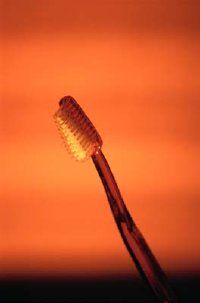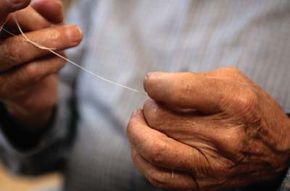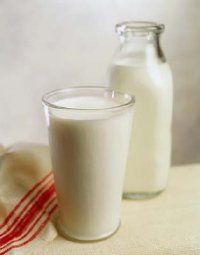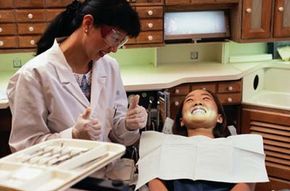Of all the health problems that can plague us, those involving our teeth are probably the most preventable. A few simple habits that most of us learned as children are pretty much all you need to maintain good oral hygiene.
However, just because we learned these habits as children doesn't mean we remember them today, and proper technique can make all the difference in the world. In this article, we'll elaborate on that elusive virtue called oral hygiene -- specifically, brushing your teeth, flossing, whitening teeth, eating an anticavity diet, and visiting the dentist. Here's a preview:
Advertisement
- How to Brush Your TeethBrushing your teeth is important to remove stray food particles, massage the gums, eliminate plaque, and freshen breath. It also helps to defend against cavities and periodontal disease. Proper brushing technique is just as important as vigilance -- be sure you bone up on the proper way to wield that toothbrush.
- How to Floss Your TeethRegular flossing is your best defense against gum disease, and it also fights cavities and decay. Good flossing technique will help you remove debris between the teeth, preventing gingivitis and periodontitis. Using the right floss and dental-cleaning equipment will aid in this process.
- How to Whiten Your TeethSome stains can be cleaned by regular visits to the dentist, while others require more aggressive measures. Brushing and flossing regularly is the best way to prevent stains. Professional bleaching can be effective in returning your teeth to a glimmering state.
- An Anticavity DietTo promote strong, heathy teeth, eat a diet rich in calcium, vitamin D, vitamin C, and fluoride. Simple sugars and starchy foods are a banquet feast for oral bacteria. A diet that is full of sugars and overprocessed foods (or one devoid of vitamins, minerals, and crunchy fruits and vegetables) can eventually lead to decay, even in the mouths of the most avid brushers and flossers.
- Visiting the DentistDon't let anxiety keep you away from the dentist's office -- the dentist is an important partner in maintaining your oral health. During a professional cleaning, the dentist or hygienist removes tartar and polishes the surface of your teeth, making it harder for plaque and tartar to adhere to them. The dentist then thoroughly examines your teeth and gums to search for any problem areas.
Your teeth need lots of care and attention to ensure life-long good oral health. Visit the links below for more information about protecting and caring for your teeth.
- If you're not vigilant in your oral hygiene, an assortment of afflictions can attack your teeth and gums. Learn more in How Dental Disease Works.
- Do you wish your teeth had just a bit more sparkle to them? How Tooth Whitening Works takes a look at procedures you can undergo to brighten your pearly whites.
- When you have an ache in your teeth, getting rid of it is the only thought in your head. In How to Relieve a Tooth Ache, find out how to deal with dental distress.
This information is solely for informational purposes. IT IS NOT INTENDED TO PROVIDE MEDICAL ADVICE. Neither the Editors of Consumer Guide (R), Publications International, Ltd., the author nor publisher take responsibility for any possible consequences from any treatment, procedure, exercise, dietary modification, action or application of medication which results from reading or following the information contained in this information. The publication of this information does not constitute the practice of medicine, and this information does not replace the advice of your physician or other health care provider. Before undertaking any course of treatment, the reader must seek the advice of their physician or other health care provider.
Advertisement




